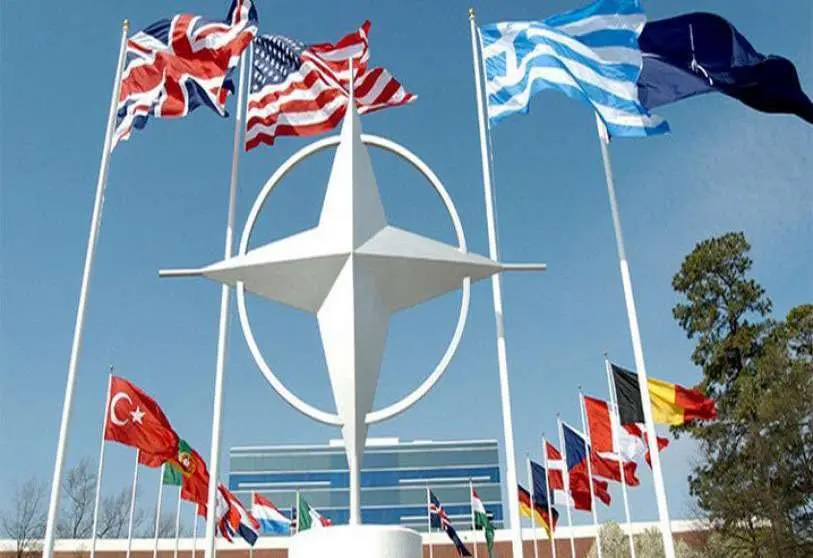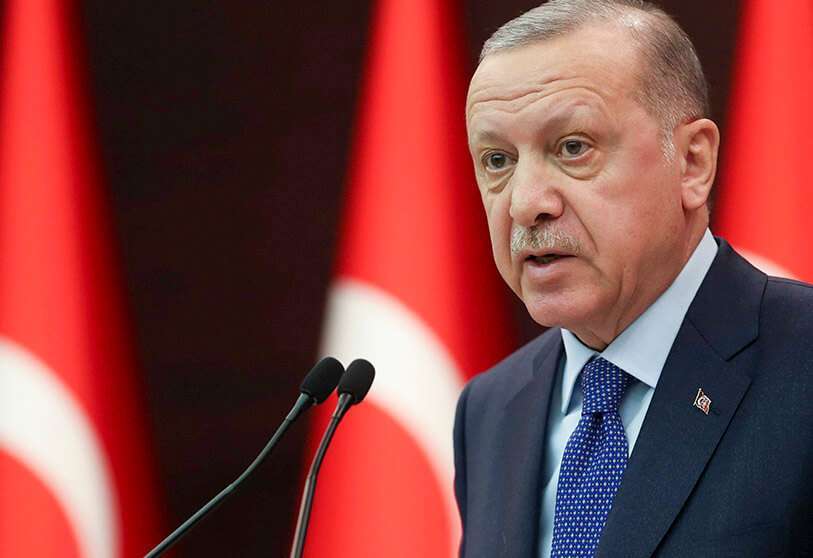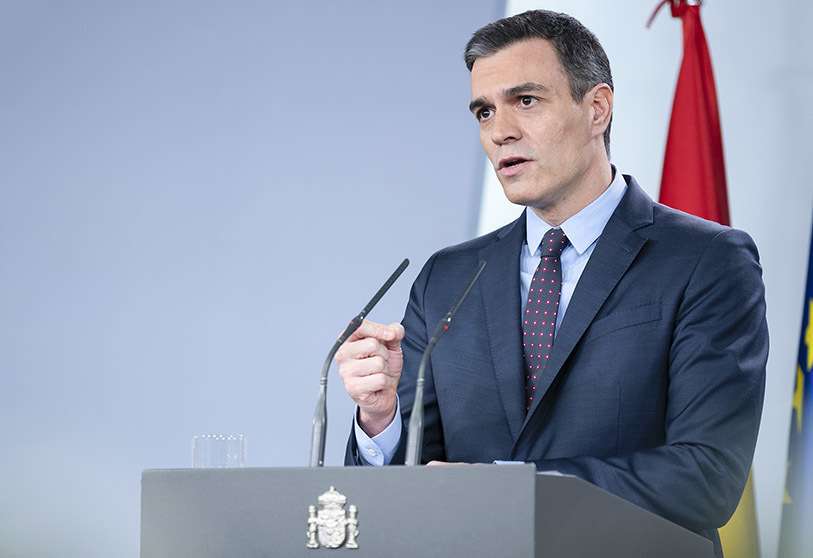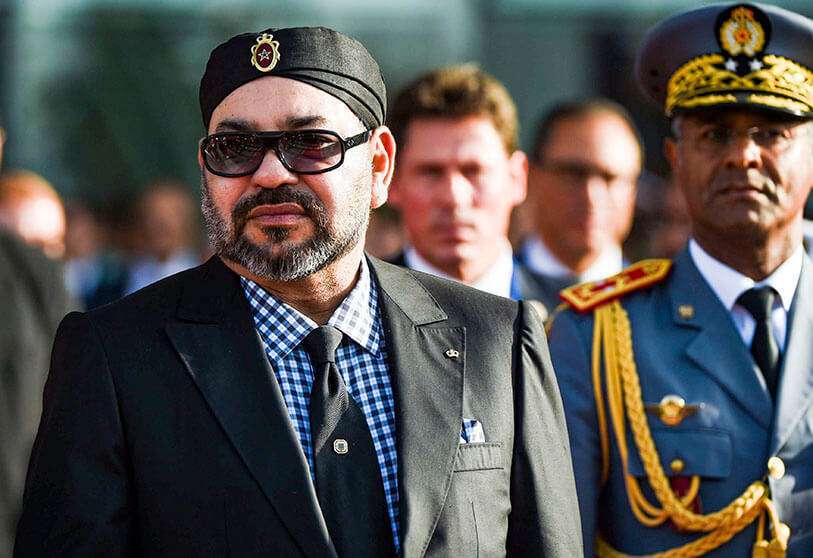NATO and its new ghosts

It is well known that NATO stands for the North Atlantic Treaty Organisation. This organisation is a politico-military alliance created during the Cold War in 1949 and is based on mutual military support between member countries in the event of aggression by third parties. It is basically an Alliance between Europe and North America born with the exclusive aim of guaranteeing the freedom and security of the member countries through political and military means and addressing the threats emanating from the former Union of Soviet Republics (USSR).
Among the above means, the politicians are based on the exaltation and comprehensive use of democratic values by enabling their members to consult and cooperate freely on an equal footing and by consensus in matters related to defence and security with particular dedication to resolving conflicts, building confidence among their members, extending individual or collective democratic values and analysing and preventing the implications of potential future conflicts both within and outside their area of interest or influence.
Most, if not all, alliances tend to have a variable period of validity and existence during which they go through different phases which we could define as: creation, expansion, strengthening, maximum splendour, adaptation to new objectives and missions, progressive decline and the definitive dissolution or disappearance, whether voluntary or forced, due to events of different kinds and for different reasons or origins.
Well, NATO, like any politico-military alliance and particularly since its main driving force or enemy disappeared from the face of the earth, the USSR, in order to maintain its survival and interest, has progressively gone through almost all the stages and has had to adapt to new threats, missions and procedures; this has entailed a series of frankly significant changes in its orientation, use, structures and mission.
On the other hand, the new demands, the natural wear and tear on relations between the allies owing to the inevitable political, economic and social clashes, the quarrels that arise for commercial or leadership reasons and inevitable friction between neighbouring countries, and the need to mitigate different points of view on the alliance's changing mission and situation and even the consequences of certain internal developments on the way of understanding the current or future direction of the organisation itself or of each of the countries; And the inevitable new approaches to individual and collective external relations in these countries mean that any political foundation, however granitic it may have been at the time, is beginning to falter, crack and even be destroyed.
In view of the foregoing and the deep changes, tensions and demands that have emerged or been created at the latest Alliance summits, as well as the discrepancies between European Allies stemming from a Brexit, which does not augur well, and other individual actions of some of the leaders of its most important members, it is possible that NATO may be going through the penultimate or even the last of the aforementioned phases.
Trump's constant, insistent and strident demands on the degree of involvement, commitment and real economic contribution of the Allies in defence expenditure, particularly those such as Spain, which are frankly far from complying with the collective defence investment agreements adopted by all of them too long ago at the Wales Summit (2014); certain differences over the need, efficiency and performance of US force deployments in Europe and their possible redeployment or repatriation; the discrepancies over the idea of the common defence of the European site following a tough Brexit; the recently sought-after, though not easy, role to be played by the EU-mainly promoted by France and supported by Germans-in this task and Putin's different and very dangerous encounters and threats with some of the old member countries or satellites of the USSR, which are still directly or indirectly linked to Russia, although most of its inhabitants would prefer to look at the completely opposite side.
To the previous difficult situation, as a specific and frankly important chapter, we should add the problems arising from Erdogan's Turkey due to its clashes and individual actions or in relation to more than one ally for various reasons such as the major differences in criteria in the purchase of anti-aircraft materials between the USA and Turkey owing to Turkey's purchase of the S-400 missiles from Russia and the US veto on the purchase of the alleged F-35s as a result of the foregoing or the constants, Increasingly frequent and growing clashes between Turkey and Greece over the exploitation of energy resources under Greek or Cypriot waters in the Mediterranean are problems that have far outweighed the traditional and entrenched disputes between the two countries. The changes in Turkey's internal and external political orientation, which are becoming less and less democratic, are manifested in Erdogan's insatiable desire for expansionism and intervention-in an increasingly apparent and obvious quest to rebuild the old Otoman Empire-in most of the conflicts near its borders or beyond them, chiefly in Syria and Libya, Lately, in Nagorno-Karabakh they are endangering the unstable balance with Russia, not to mention their high degree of fixation with the extermination of the Kurds and the risky and dangerous approaches to Iran, which are making the USA, Israel and Saudi Arabia very nervous.

As an important and dangerous hot potato for Europeans, we should mention the existence of over two million refugees in Turkish territory waiting to jump into Europe and who are contained there thanks to significant and millions of EU subsidies to prevent this from happening. This is a human avalanche that Erdogan periodically threatens to release and to give him a free hand if he is disturbed in his dirty national and international actions and felonies.
All the above issues are more than enough ingredients, too strong each, to make the Alliance's spicy salad unattractive and virtually inedible, and may even be the source or cause of more than one stitch or reason for its old and already badly patched seams to break.
Certainly, Turkey has been progressively developing, and much more visibly and intensely so since its self-coup in 2016, an absolute and clearly undemocratic and dictatorial policy. Erdogan has been subjecting his people to a strong tyranny although he apparently maintains a "democratic" regime in the country; He has changed the structure of government and the scope of presidential power by gradually concentrating control of all the powers of the state in his person, and has even annulled the secular sign of the state by converting it to the cult of Islam, going so far as to repeal the "immovable" legacy of Atatürk (the father of the Turkish nation) and to convert the old Orthodox basilica of Hagia Sophia into a mosque, despite it being a World Heritage site.
It is the second NATO country to contribute forces to the Alliance; it occupies the eastern flank and, due to its privileged strategic position, closes off Russia's free passage to the Mediterranean. It has numerous powerful armed forces and serves as a base for important American units of fighter planes, fighter-bombers and nuclear weapons. This is perhaps why its loss would have incalculable consequences for security, effectiveness, balance and the deployment of the remaining forces, as its most important and dangerous flank would be exposed.
Erdogan is well aware of the importance of his terrain and the Alliance's need for his military capability, and perhaps for this reason he plays on the patience of his allies in the knowledge that, whatever he does, he will not be corrected, although he has deserved it for a long time. Its anti-democratic demonstrations and challenges have broken all the permitted canons and it has become a very fickle and increasingly unreliable ally. This, together with the other issues mentioned, could lead to a break-up or a deep transformation of the Alliance into another type of organisation, one that is smaller or less ambitious.
As if the problems mentioned were not enough, on the opposite side we find Spain, another country that has not been making relations with the international community easy either, particularly since it has had a social-communist government -the Bolivarian-inspired communists (Venezuela) are very friendly with Iran-. President Sanchez, despite his great ability to conceal himself and appearing unaware of the problems or objections raised by others, has been publicly and notoriously reprimanded by Trump at the latest summits for all the foregoing, and as he is the least of the middle class, and by far the most, he invests in defence.
Spain is a country which, in terms of the accumulation of presidential power, even to the detriment of the figure of the head of state and control or domination over the powers of the state, has been practising a kind of turquoise (albeit somewhat lighter) that has recently rekindled the red lights within the EU and will therefore undoubtedly also cause concern in NATO.
It is in the midst of the worst and deepest situation in both the health and economic crises in the world and, with such credentials and telluric political and social movements, will probably be unable for more than five years to emerge from the hole in which the government has plunged it owing to its mismanagement and lack of foresight. It is very possible that social upheavals will increase when it becomes clear that the economic support that may come from the EU is much needed and ineffective, and will arrive - if at all - late, at a trickle and over a period of three long years; above all, if a remedy to the pandemic is not found soon and civil society manages to get the economy back on track even at the cost of bearing the huge tax burdens that are being announced at this time, in secret and against all advice. The grain of Gibraltar is still unresolved following the Brexit without agreement and the country's very dubious and fickle policy regarding the political future of Venezuela is bothering many allies in Europe and NATO.

In addition, Morocco, the eternal enemy at its back, has perceived the smell of blood and rotten flesh and, as it traditionally does, has begun to launch its territorial aspirations over waters and spaces which in this case include the Canary Islands and, at the same time, is in the process of conducting major programmes to rearm its armed forces by acquiring modern equipment from suppliers ranging from France and the USA to Russia. This situation is highly worrying and not so insignificant for NATO in general, as Morocco is a special ally of several of its members, and for Spain, unless we cease to belong to the Alliance and our ties with it are broken.
We should not forget that the constantly shrinking Spanish armed forces, which are poorly paid or underpaid, increasingly poorly educated and trained owing to a lack of sufficient budgets, quite old and scarcely equipped with modern or state-of-the-art materials, are furthermore devoted to all kinds of civil defence-type tasks or missions owing to the need for cheap or free labour in combating the COVID pandemic and are therefore becoming incapable of becoming a significant element in NATO's potential. What is more, in view of the low expectations of emerging from the macroeconomic crisis, it is more than likely that Spain's real contribution to defence expenditure will not reach the aforementioned previously established levels for five years, relegating it to being a minor ally but a hindrance or a burden that could make the rest of us question our continued membership of the Alliance.
In short, although this is not to be said clearly, we are facing a semi-paralysed NATO because, apart from suffering identity problems at its hard core, it still has to cope with the drawbacks of a more than possible hard and unagreed Brexit and the role to be played by the EU in European defence, if it is ever really capable of moving from words to deeds; What is more, both sides have problems of convenience and even permanence in the hands of regimes that are quite conflictive owing to their tendencies, origins or the interests or agendas, no longer so hidden, of those who make up or head their respective governments.

We will see whether anyone is willing or capable of dealing with so many Victorian bulls or of putting the necessary bells on the tireless cats, which will happen when the name of the new occupant of the White House is known and what his position will be with respect to the future and role of the Alliance; how far the EU will go in its "ambitious aspirations" in European defence in a semi-independent manner; how relations between the continent and the British Isles are going after a tough and probably very conflictive Brexit and what the Union's direction will be when Merkel - since Macron is losing steam and strength - ceases to hold the reins and, above all, if the particular dangers that could come from either side of the Mediterranean become more complicated.

